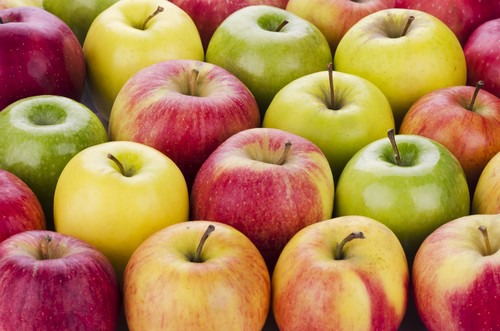The first 2023 meeting of Assomela was held on January 10. Members discussed the market trend of the month as well as exports and the problems in accessing the various markets, including Egypt, i.e. one of the main destinations in terms of volume for Italian apples outside of the EU.
The data show a situation similar to the past month, with regular sales and low stocks for many varieties. The overall stock when it comes to table apples is 1,162,375 tons, i.e. the lowest in January of the past ten years (excluding 2017). The stock of Golden Delicious is 382,872, 33% lower than the average of the 10 previous seasons while that of Gala is 93,00 tons, 22% lower than January 2022. Sales are in line with destocking plans for the other cultivars as well, both traditional and new, though we will need to wait for the second part of the season to better assess the trend.
As initially envisaged and already stressed in previous reports, the quantity of produce destined to the fresh market is well below average, with over 300,000 tons destined to the processing industry.

© Dariusz Szwangruber | Dreamstime.com
Compared with the past few months, the Italian market seems to be recovering especially when it comes to big retail chains, though exports to Europe have definitely slowed down. Sales overseas are considered good by many despite the difficulties, and seem to be sufficient to compensate for the problems in the old continent. Excellent performances have been reported in the Middle East, especially Saud Arabia, and in Central and South America, especially Brazil.
There is however still a lot of confusion when it comes to sale procedures in Egypt, an essential market for Italian apples. Letters of credit, which were introduced in February 2022, have been eliminated with a provision of the Egyptian Central Bank on December 29th.
Nonetheless, at the moment it is not clear if other tools will be introduced by Egypt as, in addition to the need to safeguard its Dollar reserves, it is going through a deep economic crisis linked also to the depreciation of the Lira. Assomela, thanks to European colleagues and with the support of Freshfel, pushed for removing letters of credit right from the start and will carefully assess how things will evolve in this important market.

When it comes to plant protection products, also following the effort of the past few months from all representatives of the Italian and European fresh produce sector, the European Council has requested the Commission to proceed with an additional study to assess the impact on the European agricultural segment of the Regulation on the Sustainable use of plant protection products.
A striking signal of the awareness of how the regulation risks causing difficulties for the entire sector, eliminating fundamental tools for production without providing an effective alternative, thus risking not guaranteeing European food safety while increasing imports from countries with productive systems less stringent than ours. Assomela hopes that this proposal, which is heavily ideological and weak, will be withdrawn leaving room for a deeper discussion leading to a suitable proposal that respects the needs of producers.
This is certainly good news for Italian producers who, at least for the time being, will be able focus on the current commercial season as, while it is true that the volumes available would be easily manageable during an "ordinary" year, it is also true that the context is absolutely "extraordinary". Quotations still do not reflect the inflation and general cost increase and will necessarily need to be revised to guarantee a fair remuneration to producers.
